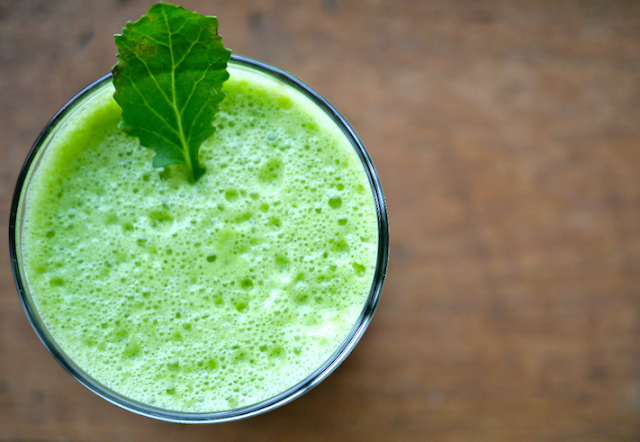A glowing and healthy skin is an asset. Skin is not all about beauty but also health. So, skin care treatment should be treated with all seriousness.
Building and following basic skin care procedures is what one could classify as preventive/proactive skin care treatment. Skin disorders can occur even if you have followed this preventive skin care treatment. Preventive skin care treatment just reduces the probability of occurrence. Let’s check the skin care treatment for some of the common skin conditions.Acne is one of the most common problems. Again, the first type of skin care treatment is to control acne and prevent it from getting worse. So avoid tight clothes; they are known to cause body acne by trapping sweat.
However, you need not spend so much on commercial skin products when there are natural plant extracts and herbs available! Many of these herbal remedies have the ability to fight free radicals, inhibit enzymatic degradation, promote collagen synthesis and possess antibacterial and anti- inflammatory properties. Here are some that have been indicated by various studies to have beneficial effects on skin:
10 Beneficial Herbs for the Skin:
The gel of aloe vera is well known for its ability to repair damaged skin and heal wounds, making it a common ingredient in skin care products. One study has found aloe vera cream to be slightly more effective than topical steroids in reducing inflammation and skin itching. Other studies indicate the value of aloe in relieving dermatitis, frostbite, burns and psoriasis.
Peppermint
In a 2011 experiment, scientists ascertained that when peppermint oil was liberally applied onto the skin, a sensation of freshness was experienced. Its cooling and refreshing qualities allow peppermint to stimulate and revitalize skin, restore skin elasticity, close pores, reduce swelling and unpleasant odor, and lessen redness and irritation.
Calendula
Also known as pot marigold, calendula is believed to heal and regenerate skin tissue. For example, calendula has been found to improve firmness and hydration of skin in human tests.There is also some evidence that suggests calendula oil-based cream may be effective against Ultraviolet B radiation-induced alterations in skin tissue.
Lavender
Outside of its relaxing and calming effects, lavender is also beneficial for skin repair. The herb contains the compound linalool that soothes the skin, prevents tissue degeneration, and keeps the skin firm and taut. Lavender also acts as an excellent anti-aging agent because of its cytophylactic properties that promote regeneration of new cells. It promotes faster healing of wounds, cuts, scar tissue, inflammation, irritation, psoriasis, sunburns, eczema, acne and other skin disorders. Lavender is also thought to have antibacterial, antiseptic, anti-toxic, anti-viral and anti-inflammatory properties.
St. John's Wort
Externally applied as a cream, ointment or macerated oil, St. John's Wort is found to have calming effects on skin irritation. An investigative study has shown that oleum hyperici, an oil extract of St. John's Wort may be used for topical treatment of wounds, burns, bruises, nerve injury, cuts, hemorrhoids and may even serve as an antiseptic. Because of its anti-inflammatory and anti-bacterial characteristics, St. John's Wort oil extracts exhibit antimicrobial activities against common microorganisms.
Green tea
Green tea is not just for drinking. Green tea extract can also be applied to the skin. One study has found that a 2% green tea lotion can work as an acne solution. Aside from alleviating acne, green tea contains antioxidant flavonoids that protect skin from the dangers of ultraviolet light, thereby supporting skin to heal from sunburns, aging and cancer.
Chamomile
Undeniably, chamomile is one of the most common herbal ingredients in many skin care products today. This herb is an excellent source of a potent compound called alpha bisabolol that is thought to be effective in accelerating the healing process of skin as well as in reducing the occurrence of wrinkles and fine lines.
More than its wonderful aroma, chamomile is also known for its anti-irritant, anti-inflammatory and soothing properties that are beneficial for the skin. When applied, chamomile is useful for relieving allergies, eczema,minor burns, sunburn and skin rashes.
Comfrey
Just like chamomile, comfrey is also one of the most popular ingredients in skin lotions today. What makes this herb effective and high in demand? It is commonly believed that comfrey's allantoin content plays a vital role in protecting the skin as well as in promoting skin cell regeneration. When applied to the skin as poultice, comfrey has the potential to heal abrasion and laceration.
This herb is also known as knitbone and can be used to treat a wide range of skin ailments. Allantoin also works by promoting skin repair and soothing skin inflammation. Despite its effectiveness, the US Food and Drug Administration banned the consumption of comfrey because it is thought to cause damage to essential organs of the body such as the liver.
Licorice
Known for its anti-inflammatory and soothing properties, licorice is a wonderful herb that promotes skin health. It is beneficial for people suffering from rosacea, eczema or psoriasis. When applied onto the skin as a gel, licorice helps to relieve symptoms like itching, redness and swelling.
Tea tree
Found in Australia, tea tree oil is known for its antiviral, antiseptic, antibacterial and anti-fungal properties. The results of recent studies revealed that tea tree oil is beneficial for treating various skin conditions and ailments including skin blemishes, acne, and scabies.
For people with acne, tea tree oil helps by acting as a natural exfoliant that destroys bacteria that causes flare-ups. Furthermore, it is useful for eliminating symptoms of skin ailments like irritation, itching and scaling.
___________________________
References:
Ernst E. Herbal Medicine in the Treatment of Rheumatic Diseases. Rheumatic Diseases Clinics of North America. 2011:37(1).Fang L, Wang Z, Kong W, Feng JG, Ma SL, Lin NM. Anti-tumor and apoptotic effects in vitro and in vivo of a traditional Chinese medicine prescription. Chin Med J (Engl). 2011;124(21):3583-7.
Gratus C, Wilson S, Greenfield SM, Damery SL, Warmington SA, Grieve R, Steven NM, Routledge P. The use of herbal medicines by people with cancer: a qualitative study.Complement Altern Med. 2009 May 14;9:14.
Hasan SS, Ahmed SI, Bukhari NI, Loon WC. Use of complementary and alternative medicine among patients with chronic diseases at outpatient clinics. Complement Ther Clin Pract. 2009 Aug;15(3):152-7.
Izzo AA, Ernst E. Interactions between herbal medicines and prescribed drugs: an updated systematic review. Drugs. 2009;69(13):1777-98.
Jang SH, Kim DI, Choi MS. Effects and treatment methods of acupuncture and herbal medicine for premenstrual syndrome/premenstrual dysphoric disorder: systematic review.BMC Complement Altern Med. 2014;14:11.
Ke F, Yadav PK, Ju LZ. Herbal medicine in the treatment of ulcerative colitis. Saudi J Gastroenterol. 2012;18(1):3-10.
___________________________
Read Also :
.













No comments:
Post a Comment